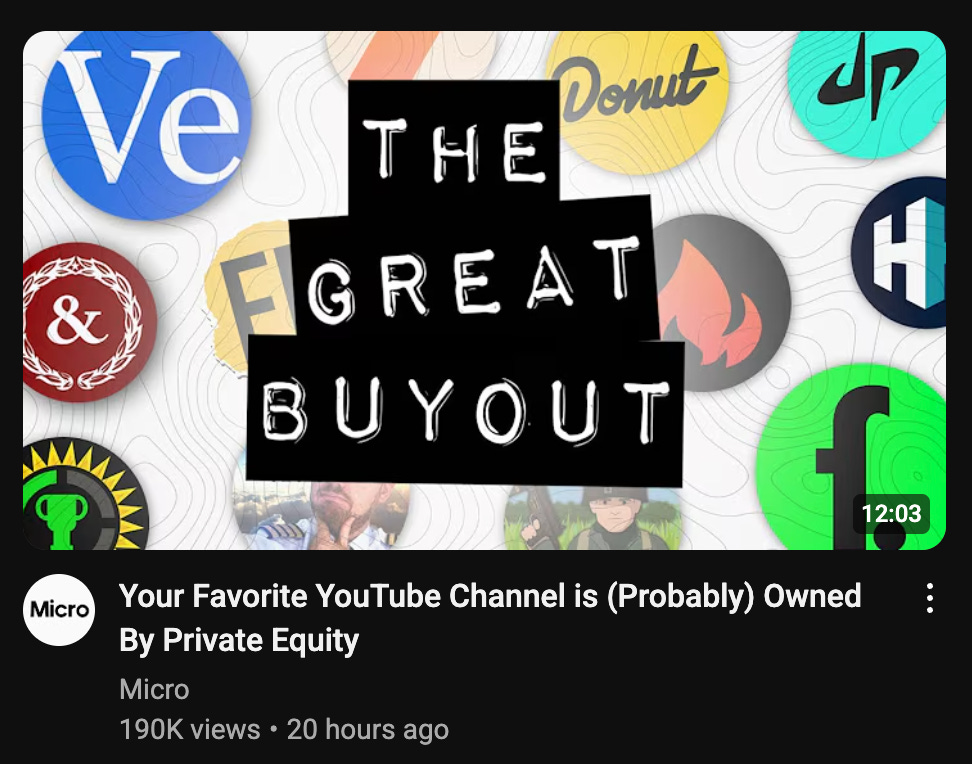Advertising in the new stratified world
Here’s another thing that ‘happened in 1971’.
Cable television had its origins in the 1950s, but it wouldn’t become the force majeure it is today until the late 1980s: in 1968, cable television uptake was at less than 7% of American households, but by 1988 it reached over 52%. I think a decent case can be made for an inflection point around 1971 that so many other unfortunate developments in recent American history share. Rather than make that case, though, I’d rather cite this uptake of cable television as evidence of a big problem resulting from it: the increasing malevolence of advertising.
Comedian Louis CK once joked in an HBO special program of his about how much more powerful marijuana is today compared to the 1970s. He said, “it used to be you could just smoke a joint for a while.” Nowadays the drug is far too strong to do that, and I think advertising has had a similar development: as time has marched on, advertising is increasingly synonymous with high-grade psychological warfare, boxed into a pay-to-win scheme where freedom of influence only exists for people with relatively large piles of expendable cash. It used to be you would just get an ad for a time, and life would go on. Buy this scooter, get that carpet cleaning service, have your driveway plowed, whatever. Now, advertising is a huge deal: it’s so powerful that it’s increasingly not even about selling products or services at all anymore. This is how you get advertisements for nonsensical things like podcasts or charitable foundations – they don’t want your money so much as they want your attention and your mind. They’re buying space on your communication feeds to forcibly acquire mindshare in the public. This doesn’t sound terrible until you consider what position it puts organic, bona fide influencers into. Speaking of influencers, have you noticed how muzzled and sold out they are lately? I have. It’s pretty sad.

Going down this path with advertising will continue to make it an evermore dangerous political liability, because it increasingly constitutes nothing more than a cheat code for fabulously wealthy and powerful elites to rig all communications channels into making their interests and desires important no matter how people actually feel about them. It’s an unholy combination of a Brave New World and 1984: the former for themselves, and the latter for everyone who has a problem with that, no matter how legitimate.
Contemporary social media gives a lot of structural legibility to these machinations, too. Every fifth post on a timeline is an advertisement, and the interface for managing your experience with them differs in one major way: it’s a lot harder to arrest their presence from your timeline. The option to block them is only available by clicking through to their profiles and even then it may not stop their ads from continuing to appear on your timeline; instead, you are given an “I don’t like this ad” button which I’m sure most of you are smart enough to figure out does basically nothing at all. If you’re wondering how much this privilege costs, just remember that you pay per impression: people merely seeing your boosted post cost you money, leaving all aspects of conversion to you. This is a hefty indictment of any normal advertising firm, but as we are discovering here, this is no normal advertising. The simple way to think about it really is as a privilege of the wealthy who can allocate six or seven figure budgets to random projects of theirs on a whim.
As the noose tightens around everyone who is still consigned to the real world, lacking false liberation in the form of expropriated financial gains stolen from the future to fund the decadence of the present, the liability advertising poses will only grow. Because at the end of the day, its only purpose is to elevate the haves over the have-nots: there is no way for it to self-legitimise or prove its worth to the public it is deployed against. It exists to defile the natural order and suppress the merit and ingenuity of the human race in service of the cowardice and patheticism of the recent inheritors of civilisation’s last bout of good times. The tired framing of consumerism falls far too short in addressing what is happening here.
So, what is your posture in regards to advertising today? I hope you have a good answer, for your sake.


